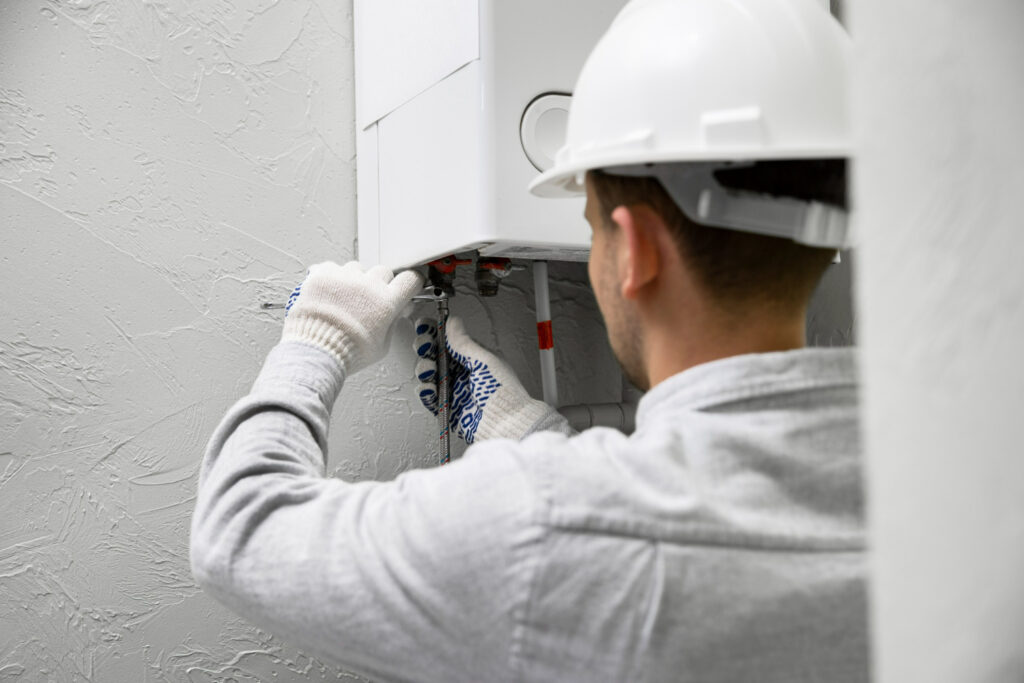How Some Boilers Don’t Meet Energy Regulations and the Impact on UK Households

In the UK, energy efficiency has become a pivotal concern for homeowners, not only for the sake of environmental preservation but also in the context of escalating bills. Recent reports have revealed that a disturbing number of domestic boilers fail to comply with federal energy regulations, which can lead to increased costs for consumers. Particularly problematic are instances where households are inadvertently fitted with below-standard boilers that are less energy-efficient, a situation that could have long-term financial impacts for the uninformed customer.
Compounding this issue, the market has seen a surge of boiler upgrade pumps that are not only contributing to inflated energy expenses, but also falling short of energy regulation compliance. This raises concerns about the integrity of energy-saving claims and the transparency of product information provided to consumers. It is now more crucial than ever for homeowners to ensure that their boilers meet the ErP efficiency rating of 92% or higher, which has been mandatory for all installations since April 2018.
Regular servicing by a recognised provider such as Book Your Boiler plays a crucial role in maintaining boiler operation at peak efficiency. This is not only a measure to comply with existing regulations but also an essential practice to further the longevity of the appliance, reduce the risk of malfunction, and guarantee genuine energy savings. Homeowners are advised to engage the services of reputable firms for conducting periodic boiler checks to avoid the pitfalls of non-compliance and unwelcome expenses.
Overview of Energy Regulations for Boilers
Ensuring compliance with energy regulations is crucial for boiler efficiency and homeowner savings. Regulations set the standards for energy performance, and non-compliance can lead to increased energy consumption and costs.
EU Energy Labelling Directive
The EU Energy Labelling Directive requires that boilers carry an energy label to inform consumers of their efficiency. This directive categorises boilers from A+++ to G, with A+++ being the most energy-efficient and G the least. The labelling assists consumers in choosing appliances that reduce energy consumption and cost.
UK Building Regulations
UK Building Regulations stipulate that boilers must adhere to a minimum energy performance. A key requirement highlights that all new gas boilers need to have an ErP efficiency rating of at least 92%. These measures ensure boilers operate effectively, keeping energy bills low and reducing environmental impact.
Common Compliance Issues in Boilers
Boilers are critical for home heating, yet up to 10% fail to meet stringent energy regulations, leading to higher costs for homeowners. This section explores key components where boilers commonly falter in compliance.
Inefficient Heat Exchangers
Heat exchangers are the heart of a boiler’s efficiency, transferring heat from the combustion gases to the water. If the heat exchanger design is outdated or the system has accumulated scale, it won’t operate efficiently. This means more fuel is burned to achieve the desired heat output, inflating energy bills and contributing to increased emissions.
Poor Temperature Control Systems
Temperature control is essential for efficient boiler operation. A system lacking precise controls can’t maintain the optimal temperature, resulting in wasted energy. Modern boilers should incorporate responsive controls to adjust the heating load effectively, yet many systems still operate with rudimentary thermostats or have faulty sensors, leading to inefficiency and non-compliance.
Substandard Insulation
A boiler’s insulation directly affects heat retention. Poor insulation causes significant heat loss, forcing the boiler to work harder and use more energy to maintain the set temperature. This not only causes compliance issues but also shortens the boiler’s lifespan due to the increased demand on its components.
Regular servicing by a recognised provider is crucial to address these compliance issues. Homeowners can ensure their boilers meet energy regulations and operate at peak efficiency, ultimately saving money and reducing their carbon footprint.
Impact of Non-Compliant Boilers
Non-compliant boilers can lead to significant environmental damage, higher energy expenditure for consumers, and serious legal repercussions for manufacturers. Understanding these impacts is essential as boilers play a crucial role in providing heating and hot water in homes.
Environmental Consequences
Boilers that fail to meet energy efficiency standards contribute to excessive carbon emissions. Since these boilers operate below the required Energy related Products (ErP) energy efficiency rating of at least 92%, they use more fossil fuels. This inefficiency leads to unnecessary strain on natural resources and exacerbates climate change.
Increased Energy Bills for Consumers
Homeowners with non-compliant boilers face increased energy bills. An underperforming boiler requires more energy to heat a home, leading to inflated costs. In the UK, where concerns about rising energy bills are prevalent, the efficiency of boilers is of paramount importance to household economies.
Legal Implications for Manufacturers
Manufacturers and installers face strict legal consequences for distributing or fitting non-compliant boilers. According to the Building Regulations, any boiler installation that does not meet the stipulated standards is deemed non-compliant, leaving no option for opting out, even at the customer’s request. Non-compliance can result in enforcement action from Trading Standards, and in severe cases, it may be considered fraudulent activity.
Advancements in Boiler Technology
With continuous innovation in the heating industry, modern boilers have become significantly more energy-efficient and adaptable to varying household needs, promising reduced energy consumption and lower bills.
Condensing Boilers
Condensing boilers represent a leap forward in boiler technology. They operate by capturing heat typically expelled through flue gases and using it to preheat cold water entering the boiler. This process can lead to a boiler efficiency of over 90%, which surpasses older, non-condensing designs that often operate in the 60-70% range. Implementing such technology ensures compliance with the Energy-related Products (ErP) Directive, mandating an efficiency rating of 92% or higher. Boilers unable to meet these standards could lead to increased running costs for homeowners.
Smart Control Features
The integration of smart control features in boilers is an important aspect that can further enhance efficiency. These systems allow users to fine-tune their heating preferences, often leading to reduced energy usage. Features may include programmable timers, thermostats that adjust to weather conditions, and even remote control via mobile apps. Advanced control systems can assist in maintaining optimal boiler efficiency and are instrumental in ensuring boilers comply with regulations such as those outlined in the Boiler Plus standards.
Modern boilers can make a significant difference in energy consumption, but it’s crucial that they meet current regulatory standards for efficiency. As many as 10% of boilers on the market may not comply, underscoring the importance of choosing the right model and keeping up with regular maintenance from recognised service providers.
Strategies for Ensuring Compliance
Ensuring that boilers are energy efficient and compliant with regulations can prevent homeowners from incurring higher energy bills. Focusing on regular maintenance and adherence to standards is critical.
Periodic Energy Audits
Periodic energy audits are essential for identifying boilers that fall short of the required 92% efficiency stipulated by the Boiler Plus regulations. During audits, specialists evaluate heating systems to confirm they meet the government’s energy efficiency standards and suggest necessary upgrades or replacements.
Adoption of Eco-Design Standards
The adoption of eco-design standards ensures that new boilers are designed to minimise energy waste. Manufacturers are encouraged to produce boilers that respond efficiently to heating demands, thereby reducing fuel consumption and emissions.
Government Incentives
Government incentives play a pivotal role in encouraging compliance with energy regulations. Initiatives such as grants or tax benefits can motivate both manufacturers and homeowners to invest in compliant, high-efficiency boilers.





